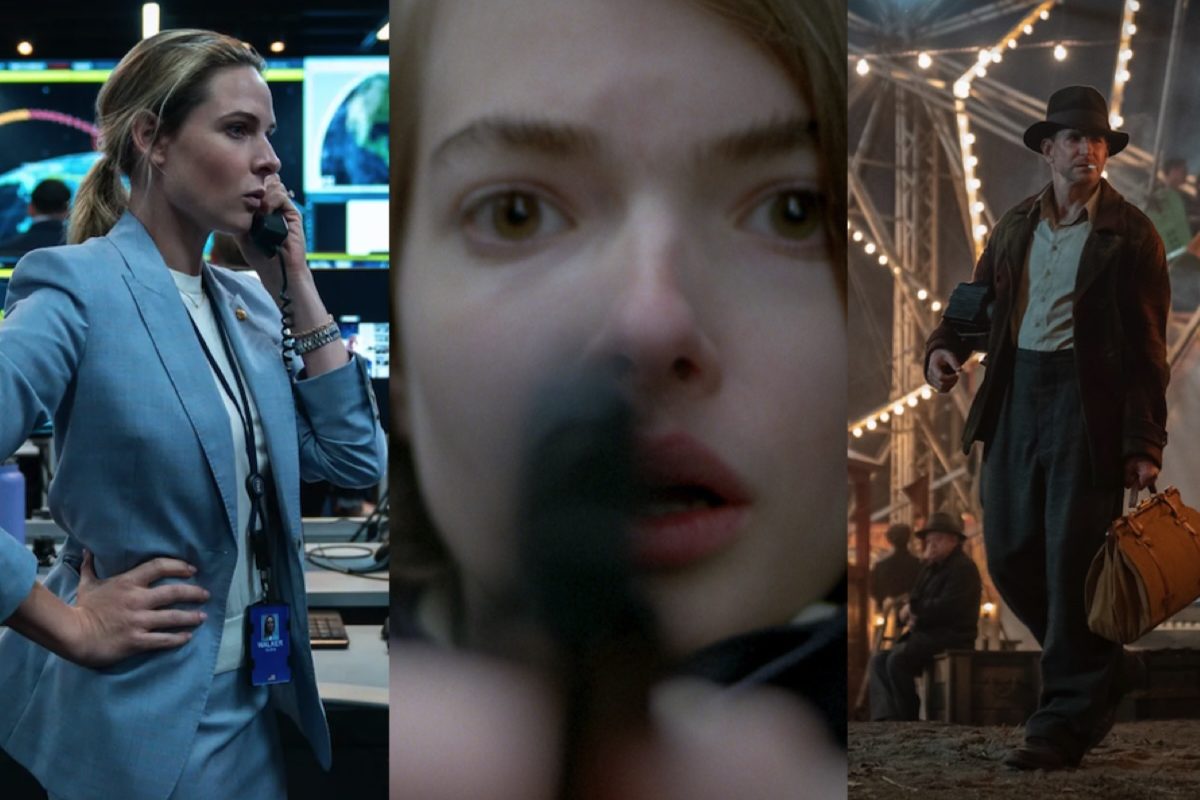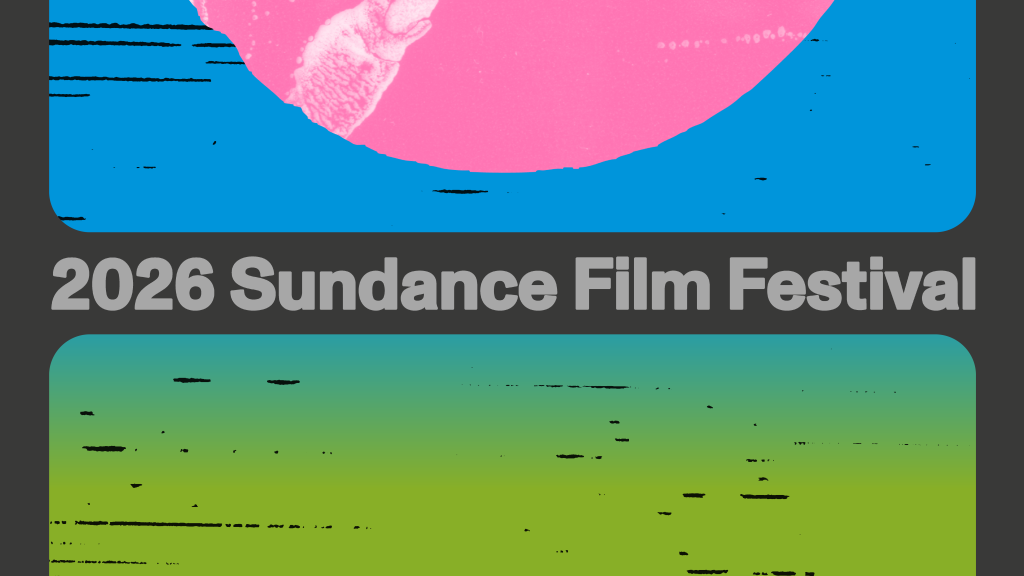Every Tuesday, discriminating viewers are confronted with a flurry of choices: new releases on disc and on demand, vintage and original movies on any number of streaming platforms, catalogue titles making a splash on Blu-ray or 4K. This twice-monthly column sifts through all of those choices to pluck out the movies most worth your time, no matter how you’re watching.
PICK OF THE WEEK:
MS. 45: Abel Ferrara’s 1981 exploitation sensation gets the 4K treatment for Arrow Video, and it’s an unexpected knockout — a grimy, low-budget, rape-revenge thriller may not be your go-to subject for that kind of upgrade, but damned if the crispness of the image doesn’t underscore Ferrara’s visual virtuosity and film literacy. Zoë Lund is astonishing as a mute victim-turned-vigilante, turning in what amounts to a silent movie performance, conveying all of her fear, fury, and bloodlust in her soft face and fiery eyes. (The parade of scumbags she takes down don’t really stand a chance, and that’s how it should be.) Ferrara builds taut suspense sequences and unapologetically bloody set pieces, up to and including the unforgettable costume party climax, and the all-timer image of our heroine, in a nun’s habit, kissing the bullets that will finish her work. What a a picture! (Includes audio commentary, featurettes, interviews, short films, and essays by Kier-La Janisse and Brad Stevens.)
ON NETFLIX:
A House of Dynamite: It’s been a good long while since I’ve seen a potentially great movie deflate itself as efficiently as Kathryn Bigelow’s latest, a Fail Safe-style dramatization of the nuts and bolts of a nuclear emergency. But it’s worth seeing for the stretches when it works, particularly early on, when Bigelow has a pitch-perfect protagonist in Rebecca Ferguson, whose mixture of vulnerability and toughness has rarely had a stronger showcase. The filmmaking is muscular and visceral — this thing moves like a locomotive — and Bigelow shows her usual proficiency at inserting jolts of humanity into stressful situations. However, the picture’s narrative gimmick grows tiresome, and the lack of a satisfying ending feels like borderline trolling. But there are things worth seeing here, if you go in with your expectations properly calibrated.
ON 4K:
Back to the Future: 40th Anniversary Trilogy: Robert Zemeckis and Bob Gale’s venerable, Michael J. Fox-fronted time-travel trilogy has not wanted for physical media representation; hell, it already got a 4K box set back in 2020. But this anniversary set nevertheless looks spiffy as hell, with an image that sparkles without losing its nostalgic tinge, and includes (per the box) “90+ minutes of all new bonus.” Most importantly, the movies remain as they are: the first a near-perfect comedy of clever construction and Oedipal impulses (the comic wizardry of Lea Thompson and Crispin Glover’s supporting performances only becomes clearer with the passage of time), the second a dizzyingly inventive science fiction movie with a rueful shortage of heart and jokes, the third a fine return to form, thanks in no small part to the addition of Mary Steenburgen, the genuinely thrilling (and clearly Buster Keaton-inspired) climax, and career-high work of Christopher Lloyd. (Includes audio commentaries, new and archival featurettes, deleted scenes, lost audition tapes, short film, panel discussion, and trailers.)
Nightmare Alley: The commercial failure of Guillermo del Toro’s adaptation of William Lindsay Gresham’s novel (and remake of Edmund Goulding’s ace 1947 film version) was disappointing but not surprising; studios don’t even know how to make movies like this anymore, much less market them. But, like del Toro’s earlier Crimson Peak, it’s the kind of movie that fails in the modern marketplace but finds its audience, one that can appreciate its leisurely pacing, eye for eccentricity, and doom-laden worldview for the rarities they are, so its addition to the Criterion Collection is most welcome indeed. Performances are strong across the board — particularly star Bradley Cooper, never better, and Rooney Mara, who gives real life and warmth to the potentially dull character of the “good girl.” Nathan Johnson’s score is deliciously baroque, costumes are impeccable, and Dan Laustesen’s cinematography is bursting with images of brutal beauty. (Includes audio commentaries, theatrical and extended black-and-white director’s cut, documentary, introduction, conversations, trailers, and essay by Sarah Weinman.)
Altered States: The final film project of the great Paddy Chayefsky (another new addition to the Criterion Collection) was a messy one; he so vehemently disagreed with the approach of director Ken Russell that he used the pseudonym for his screenplay credit (from his own novel). The production may have been inharmonious, but the fusing of these two vastly different sensibilities resulted in a fascinating film, allowing Chayevsky’s intellectual concerns and egg-headed dialogue to somehow co-exist with Russell’s typically out-there visual style. William Hurt is terrific (in his film debut, astonishingly) as the brainy psychopathologist who serves as his own guinea pig for a series of increasingly dangerous experiments, while Bob Balaban, in a rare borderline-leading role, provides appropriate counterbalance as his skeptical colleague and friend. (Includes audio commentary, new and archival interviews, trailer, and essay by Jessica Kiang.)
A History of Violence: Also new to the Criterion Collection, this 2005 thriller gave us all yet another opportunity to reconsider what, exactly, a “David Cronenberg movie” was, and what it could be. Working from a screenplay by Josh Olson (adapting the 1997 graphic novel), it stars Viggo Mortensen — the beginning of a fruitful actor/director collaboration — as a small-town diner owner whose casual act of heroism brings him the wrong kind of attention. This is some of Mortensen’s best work, supplemented by an as-per-usual deeply lived-in turn by Maria Bello as his wife, and scenery-chewing turns by Ed Harris and (again) William Hurt. If you’ve never seen it, go in knowing as little as possible; if you have, it’s probably overdue for a revisit. (Includes audio commentary, new and archival interviews, documentary, featurettes, deleted scene with audio commentary, trailer, and essay by Nathan Lee.)
Deep Crimson: The dark horse of this month’s Criterion additions is closer to the Collection than it might seem; Mexican director Arturo Ripstein may not be a widely-known name to cinephiles (though he certainly should be), but his 1996 thriller is essentially a remake of the Criterion favorite The Honeymoon Killers, albeit even more graphic and psychologically troubling. Ripstein eschews the tabloid black-and-white for the rich saturation and artful compositions of an Almodovar movie, and plenty of the dark humor as well. But the winks give way to unnerving bloodshed, particularly in the third act, as the maternal guilt of our “heroine” takes the story into some mighty dark territory. A true discovery, strange and unnerving and unforgettable. (Includes interviews, introduction, panel discussion, trailer, and essay by Haden Guest.)
King of the Gypsies: Paramount Pictures was clearly hoping for another Godfather when they bankrolled this 1978 adaptation (new from Cinématographe) of the non-fiction bestseller by author Peter Maas (Serpico) — and they didn’t get there, to be clear. But this is an enjoyably trashy and often riveting account of the “traveler” subculture, orchestrated with texture and detail by director Frank Pierson, boasting a killer cast (including a loathsome Judd Hirsch, a knockout Annette O’Toole, a young Annie Potts, the inimitable Shelley Winters, Pretty Baby pair Susan Sarandon and Brooke Shields, Godfather’s Sterling Hayden and Godfather II’s Michael V. Gazzo) and a startling title turn from Eric Roberts, in his film debut. (Includes audio commentary, new and archival interviews, video essay, Trailers from Hell commentary, and essays by Caden Mark Gardner, Adam Nayman, Chris Shields, and yours truly.)
The Curse of Frankenstein: Warner Archive’s latest addition to their small but mighty 4K library arrives just in time for Halloween (and Guillermo del Toro’s new version), and is a hell of a spooky season watch. It was essentially the starter pistol for the lucrative and long-running horror strand of Hammer Films’ output, with director Terence Fisher freely adapting Mary Shelley’s classic book, taking pains to approach the oft-told tale from new angles. Peter Cushing is spot-on as the good doctor, conveying both his idealism and narrow-mindedness, and the screenplay by Jimmy Sangster isn’t just a gore-fest — in fact, we’re more than halfway into the slender 83-minute running time before the monster is reanimated. Hammer Films were renowned for their rich colors and baroque visual style; both are beautifully captured by this reference-quality 4K restoration. (Includes versions in three aspect ratios, audio commentaries, featurettes, alternate scenes, trailers, and 8mm home movie abridgment.)
Jacob’s Ladder: When this horror thriller hit theaters in the fall of 1990, audiences didn’t get what they expected from either director Adrian Lyne (known for flashy, fleshy product like Flashdance and Fatal Attraction) or screenwriter Bruce Joel Rubin (who’d penned the year’s biggest hit, Ghost). Instead of a slick supernatural crowd-pleaser, they crafted a thoroughly disturbing portrait of PTSD and urban paranoia, with Tim Robbins as a Vietnam vet haunted by visions of combat death, New York City decay, and alternate realities. There’s no soft-soaping it: this is pitch-black stuff, nightmare fuel really, but Lyne is commendably dedicated to this dark vision, Robbins is a perfect avatar, Elizabeth Pena is marvelous as his increasingly worried lover, and the supporting cast is full of tremendous talents in early roles. Lionsgate’s 4K presentation is a stunner. (Includes audio commentaries, featurettes, interviews, deleted scenes, and trailers.)
In the Mouth of Madness: John Carpenter directed, and soon-to-be big-time Hollywood exec Mike DeLuca wrote, this story of an insurance investigator (Sam Neill, going for it) hired by the publisher of a Stephen King-style horror novelist to figure out where he’s gone, and more importantly, what he’s done with his latest manuscript. New to 4K from Arrow, the storytelling isn’t exactly innovative, but it’s a visual feast, allowing Carpenter to indulge in some of the most genuinely odd and experimental imagery of his career, from the drawn-out, doomy images of its early passages to the nightmare logic of its final passages. It’s the best film of Carpenter’s wildly uneven ‘90s, and many of its flaws fall away in the face of one of the filmmaker’s all-time great endings. (Includes new and archival audio commentaries, interviews, and featurettes, theatrical trailers and TV spots, and essays by Guy Adams, Josh Hurtado, Richard Kadrey, George Daniel Lea, Willow Catelyn Maclay, and Alexandra West.)
Rampage: Long the most neglected title in William Friedkin’s impressive filmography, this inspired-by-a-true-story crime thriller (penned by Friedkin himself, adapting William P. Wood’s novel) was slated for release in 1988, but ultimately sat on the shelf for several years before released in a compromised form by Miramax. (Sound familiar?) Now, after never even making its way to Blu-ray, Rampage gets a loving 4K package from KL Studio Classics. It’s not exactly a lost gem; the acting is uneven, the courtroom histrionics are a bit much, and despite the lensing by Wes Anderson’s go-to guy Robert Yeoman, it looks pretty low-rent. But the domestic murder scenes are genuinely grisly and upsetting, the tacit commentary on slasher movies is well-aimed, and Friedkin ably uses the genre conventions as cover for a thoughtful exploration of the morality of the death penalty and the insanity defense. (Includes both cuts, audio commentaries for each, interviews, and trailer.)
Death Wish 3: We’ve fully entered the “camp classic” phase with Michael Winner’s second sequel to the 1974 Gotham thriller; that film was casually racist and uncomfortably amoral, but it at least felt like it sprung from something resembling the real world. By the time Winner and star Charles Bronson reteamed for this 1985 installment, all vague nods toward reality had long evacuated, and on the comically unconvincing Toronto stand-ins for NYC, they created an all-out cartoon — a movie closer to The A-Team than Taxi Driver, an inner-city Rambo where the considerable bloodshed and might-makes-right approach is all but deadened by the sheer silliness of the entire enterprise. But it has its fans, and those who enjoy Winner’s nutjob vision and Bronson’s (to put it politely) minimalist approach will enjoy the care and slickness of KL’s 4K presentation. (Includes audio commentaries, alternate ending, interview, and trailer.)
ON BLU-RAY:
Rafferty and the Gold Dust Twins: Ask an aficionado of ‘70s cinema why that era means so much to them, and you’ll likely hear about genre demystification, broken boundaries on adult subject matter, anti-authoritarianism, the works. But the hardest aspect to articulate may be the most important: freedom of tone. Take, for example, this 1975 road movie from director Dick Richards (new on Blu from Warner Archive). A decade earlier, it would have been an AIP picture; a decade later, it would have been a wacky studio comedy. But at this specific point, it could be both of those things and more, with John Kaye’s anything-goes script, Richards’s freewheeling direction, and the charismatic trio at its center (Alan Arkin, Sally Kellerman, and Mackenzie Phillips) taking the viewer on a wild ride where the destination is never certain — even once they’ve arrived there. It’s funny, sexy, sad, and strange, sometimes all at once, and the supporting cast is a murderer’s row of great character actors: Harry Dean Stanton, Alex Rocco, Richard Hale, and Phillips’s American Graffiti co-star Charles Martin Smith. (Includes trailer.)
The Racket: Robert Mitchum is top-billed in this 1951 crime drama (also new from Warner Archive), but the entire enterprise is unapologetically stolen from him by the great Robert Ryan. It’s not entirely Mitchum’s fault; Ryan is playing an amoral crime boss, slapping and humiliating his underlings and spitting out dialogue like “I was runnin’ this town when you cheap jerks were still eating in diners,” while Mitchum seems a little straight-jacketed by playing a good guy cop on his tail. But by the time Ryan goes full-on sweaty and unhinged in the home stretch, Mitchum’s borderline-inertness feels like the coolest flex of all. (Includes audio commentary and trailer.)
Berbarian Sound Studio: A clever if occasionally repetitive bit of meta-horror for writer/director Peter Strickland (In Fabric), who tells the story of a serious-minded sound mixer (beautifully played by the invaluable Toby Jones) who’s hired to go to Italy and work on a particularly grim and graphic horror picture. Aside from the giallo-style fake opening credits, we don’t see a frame of the film he’s working on. We’re only given access to the studio, where lettuce is being stabbed and watermelons are being smashed. It’s a risky move, because it leaves Strickland with the considerable task of creating visual interest in that single location, but it’s ultimately wise, because it causes us to focus on what’s going on in that room — and in Jones’s head. (Includes audio commentaries, featurettes, interview, deleted scenes with audio commentary, original short film, trailer, and essay by Willow Catelyn Maclay.)
Radioland Murders: Perhaps the least-discussed movie on George Lucas’s IMDb page, this 1994 farce found him again boosting the work of his pals Willard Huyck and Gloria Katz (anyone who stands behind the folks who made Howard the Duck is a true friend indeed). He’d been trying to make their story of a killing spree at an old-time radio station for something like 20 years, at one time planning to direct with Steve Martin and Cindy Williams in the leads; eventual star Brian Benben proved to be no Martin, but he’s charismatic enough, and Mary Stuart Masterson shows a real flair for this kind of broad comedy. It doesn’t really hang together, but there are enough good bits, and welcome quickie co-stars (including George Burns, Bob Goldthwait, Christopher Lloyd, and Michael McKean), to provide a few giggles. (Includes audio commentary, interview, and trailer.)



